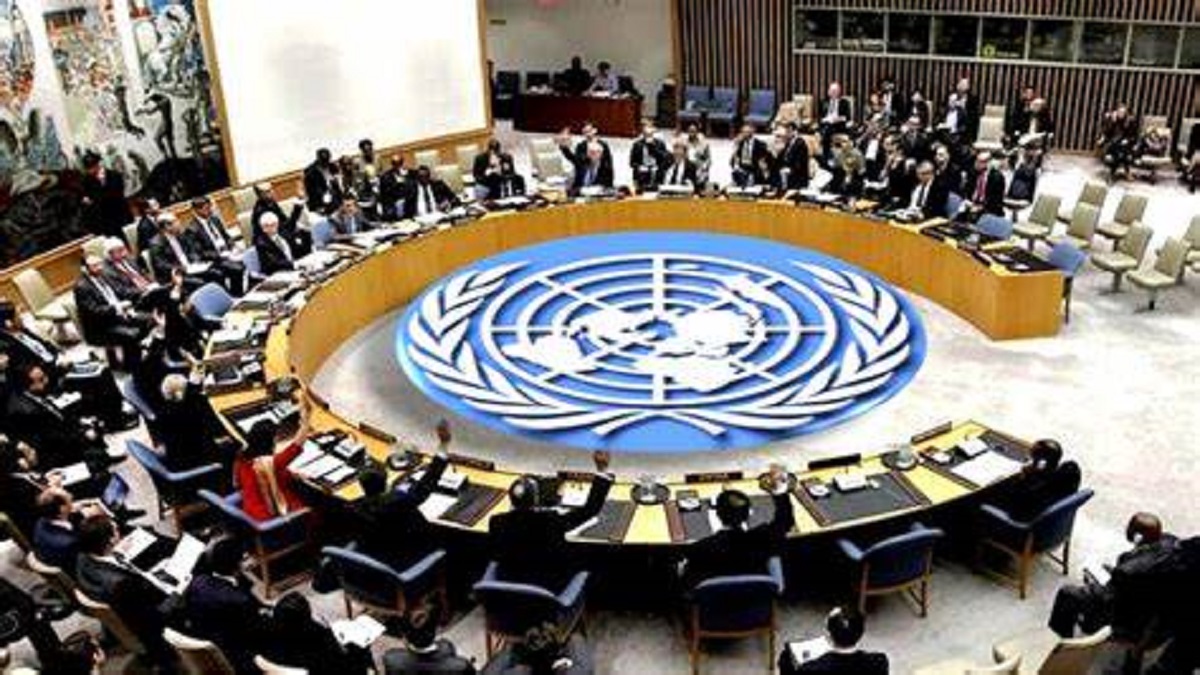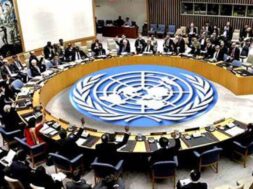
NEW DELHI, Sept 1: Around the time the last US soldier was exiting Kabul, the United Nations Security Council (UNSC), under India’s presidency, adopted a resolution that gave de facto recognition to the Taliban as a state actor in Afghanistan.
The resolution, sponsored by France, UK and the US, was adopted with 13 members, including India, voting in favour, none against it, but two of the five permanent members Russia and China abstained.
India’s month-long Presidency of the powerful UNSC ended on Tuesday with ‘substantive’ outcomes on key global issues including the strong resolution on the situation in Afghanistan, which demanded that the Afghan territory not be used to threaten any country or shelter terrorists.
India, currently serving a two-year term as a non-permanent member of the 15-nation Security Council, assumed the rotating Presidency of the UN body for the month of August.
The Presidency ended with the first resolution on the situation in Afghanistan, following the takeover of Kabul by the Taliban.
“As we wind down our Presidency of UN #SecurityCouncil, we thank all colleagues in #UNSC for their tremendous support to make our Presidency a success with many substantive outcomes,” India’s Permanent Representative to the UN Ambassador T S Tirumurti tweeted on Tuesday.
“I & @IndiaUNNewYork wish incoming Presidency @irishmissionun & Amb Geraldine Nason all success,” he said.
US Ambassador to the UN Linda Thomas-Greenfield congratulated India for a successful presidency of the UN Security Council for the month of August.
Under India’s Presidency, the Council held three sessions on Afghanistan and issued three press statements on August 3, 16 and 27, the last one strongly condemning the “deplorable attacks” near the Hamid Karzai International Airport in Kabul on August 26.
On the penultimate day of India’s Presidency, the Council issued the strong resolution on Afghanistan demanding that Afghan territory not be used to threaten or attack any country or to shelter or train terrorists, or to plan or to finance terrorist acts. It reiterated the importance of combating terrorism in Afghanistan.
Foreign Secretary Harsh Vardhan Shringla chaired the session in which the resolution was adopted. He said the resolution “unequivocally” conveys that Afghan territory should not be used to threaten or attack any nation, shelter or train terrorists, and this is of “direct importance to India.” He said it sent a “strong signal” from the international community on its expectations from Kabul.
The UNSC resolution named the Taliban five times, but did not condemn the grouping. Rather, it “noted” Taliban’s “commitments” about “the safe, secure, and orderly departure of Afghans and all foreign nationals from Afghanistan.” The resolution also stressed the importance of maintaining humanitarian access, upholding human rights, reaching an inclusive political settlement and combating terrorism. It did not, however, spell out any provision to punish the Taliban if they failed to allow such departures or follow the commitments.
India began its Presidency with a high-level signature event on maritime security presided over by Prime Minister Narendra Modi, with Tirumurti describing it as “path-breaking” in many ways since this was the first time the Prime Minister of India chaired the Security Council.
External Affairs Minister S Jaishankar chaired the two other signature events – on Peacekeeping and Technology on August 18 and the briefing on ISIL/Da’esh on August 19.
Tirumurti had underlined that the event on peacekeeping showcased India’s strong commitment to peacekeeping, besides reflecting “our age-old tradition” in this field. India exchanged a MoU with the UN in support of the ‘Partnership for Technology in Peacekeeping’ initiative and to UN C4ISR Academy.
Highlighting the several “historic firsts” that India achieved through this event as well, he had said for the first time, India drafted a resolution on peacekeeping focused on ensuring accountability for crimes against peacekeepers.
The resolution was sponsored by 80 member states, including all 15 members of the Security Council, “which is not often seen in the Security Council,” Tirumurti had said.
“Also for the first time, the Security Council held an Open Debate focused exclusively on how technology can aid in peacekeeping and for the first time, the Security Council adopted a Presidential Statement on the topic of technology and peacekeeping,” he had said.
Following the August 19 ministerial-level briefing on ISIL/Da’esh, the Council unanimously issued a press statement that reiterated that they condemn in the strongest terms all instances of terrorism and noted with concern that ISIL (Da’esh) could regain the ability to launch or orchestrate international terrorist attacks.
Under India’s presidency, the Council successfully steered the discussions on various peace and security issues that are on its agenda, including Afghanistan, Myanmar, Syria, Yemen, and the Middle East Peace Process.
Several UN member states tweeted to express gratitude to India for its leadership of the Council during the month. “Brazil extends its warm congratulations to the whole team of @IndiaUNNewYork – our partner in BRICS and IBSA– for presiding over the @UN Security Council in a specially critical month. As an incoming Council member, we look forward to working together next year,” Brazil’s Mission to the UN said.
Permanent Representative of Qatar to the UN Ambassador Alya Ahmed Saif Al Thani and UAE Mission to the UN congratulated India for the successful presidency of the UNSC during August.
(Manas Dasgupta)













